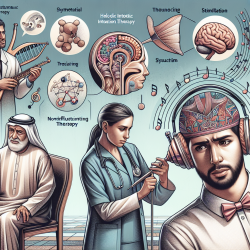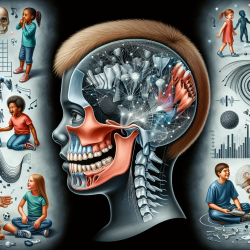The qualitative study titled Help-seeking strategies and treatment experiences among individuals diagnosed with Bipolar Spectrum Disorder in Iran: A qualitative study provides valuable insights into the challenges faced by individuals with Bipolar Spectrum Disorder (BSD) in Iran. This research highlights the complex interplay of social, cultural, and structural factors influencing help-seeking behaviors and treatment adherence. As practitioners, understanding these dynamics can enhance our ability to provide effective and culturally sensitive care.
Cultural and Structural Barriers to Treatment
The study identifies several barriers that impact the treatment experiences of individuals with BSD in Iran. These include:
- Structural Limitations: The mental healthcare system's focus on biomedical interventions often neglects psychosocial aspects crucial for comprehensive care. The lack of affordable psychological services further exacerbates this issue.
- Cultural Stigma: Stigma surrounding psychiatric disorders and medication use is prevalent, leading to delays in seeking appropriate care. Patients often prefer consulting general practitioners or neurologists over psychiatrists to avoid being labeled as "crazy."
- Lack of Cultural Competence: The study emphasizes the need for culturally informed practices that respect patients' values and beliefs. Current practices often impose normative cultural values, which can alienate patients.
Improving Practitioner Skills
The findings from this study offer several opportunities for practitioners to enhance their skills:
- Cultural Sensitivity: Practitioners should strive to understand the cultural context of their patients' experiences. This involves recognizing local idioms of distress and integrating them into treatment plans.
- Patient-Centered Care: Building a therapeutic alliance requires active listening and respecting patients' perspectives on their mental health issues. Providing a safe space for patients to share their experiences is crucial for effective treatment.
- Advocacy for Structural Reform: Practitioners can advocate for systemic changes that prioritize human rights and secular training for mental healthcare providers. This includes promoting an ecosocial model of care that addresses both biological and psychosocial factors.
The Role of Alternative Pathways
The study also highlights the role of alternative pathways in coping with mental health issues. Many individuals turn to spiritual practices or seek advice from psychologists in the Iranian diaspora through media channels. While these alternatives may provide temporary relief, they often lack scientific validity.










